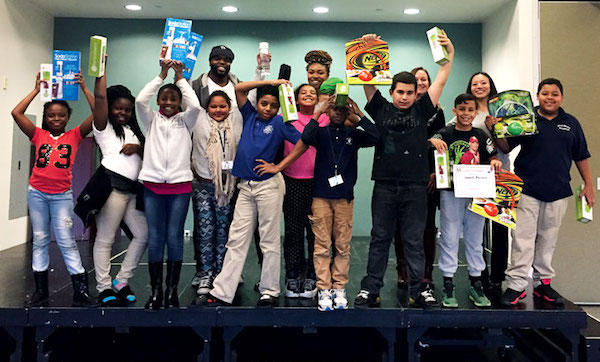Professor Receives $3.3 Million for Boys & Girls Club Collaboration.

Monica Wang, assistant professor of community health sciences, has received a five-year, $3.3 million grant from the National Institute of Diabetes and Digestive and Kidney Diseases for a first-of-its-kind initiative to reduce sugary drink consumption and obesity risk at 10 Boys & Girls Clubs (BGC) around Massachusetts starting February 1.
The H2GO! Program will use an empowerment strategy based on youth-produced narratives, scaling up from a pilot study last year at the BGC in Worcester. That study found participants and their parents and guardians consumed fewer sugary drinks and more water over a six-month period, and the youths had decreased zBMI scores (an adjusted body-mass index measurement that takes into account how children grow), compared to counterparts at a demographically-similar BGC in nearby Lowell.
“What’s most exciting to me is that we designed this program to empower youth as positive change agents in their families and communities,” Wang says. “The breadth of creativity and depth of the personal stories they shared in the pilot study has by far been the most rewarding aspect of the project to witness.”
In the six-week H2GO! sessions, BGC staff will lead nine- to twelve-year-olds in activities promoting replacing sugar-sweetened beverages with water, including blind taste tests of flavored water, a corner store scavenger hunt, and role play skits about ways to drink water and what to do when tempted by sugary drinks. The youths will also create written, audio, and video narratives to promote replacing sugary drinks with water and provide strategies for doing so—and teach their parents or guardians what they have learned each week by sharing their narratives. The youths then lead a culminating BGC community event, featuring their narratives and taste tests.
“Our team designed H2GO! to be integrated within BGCs, making it well-positioned for scalability,” Wang says. “BGCs are an ideal setting for youth and community health promotion, particularly given their emphasis on empowering youth to lead healthy, productive lives.”

After the pilot, Wang says that several BGCs around the state expressed interest in implementing a program such as H2GO! through their existing health programming infrastructure.
“Targeting sugary drink intake and obesity through youth empowerment is so appealing for Boys & Girls Clubs because it supports our goal of helping young people make good decisions,” says Jennifer Aldworth, executive director of the Massachusetts Alliance of Boys & Girls Clubs. “This curriculum is a great compliment to the array of programs Boys & Girls Clubs currently offer, which develop young people’s capacity to engage in positive behaviors to nurture their well-being, set personal goals, and grow into self-sufficient adults.”
Thanks to the new grant, Wang and colleagues will be expanding the program in a randomized trial with 10 BGCs spread across the Commonwealth. Five of the BGCs will implement the H2GO! curriculum, while the other five will serve as controls (and then also receive the intervention after the researchers complete their data collection). The trial is slated to include BGCs in Lowell, Lawrence, Waltham, Allston, Holyoke, Westfield, Plymouth, Brockton, and two sites in Worcester.
The project is an academic-community collaboration between Boston University’s Schools of Public Health and Social Work, the University of Massachusetts Medical School, and the Massachusetts Alliance of Boys and Girls Clubs.
The National Institute of Diabetes and Digestive and Kidney Diseases is one of the National Institutes of Health (NIH). The views expressed above do not necessarily represent the official views of the National Institutes of Health.